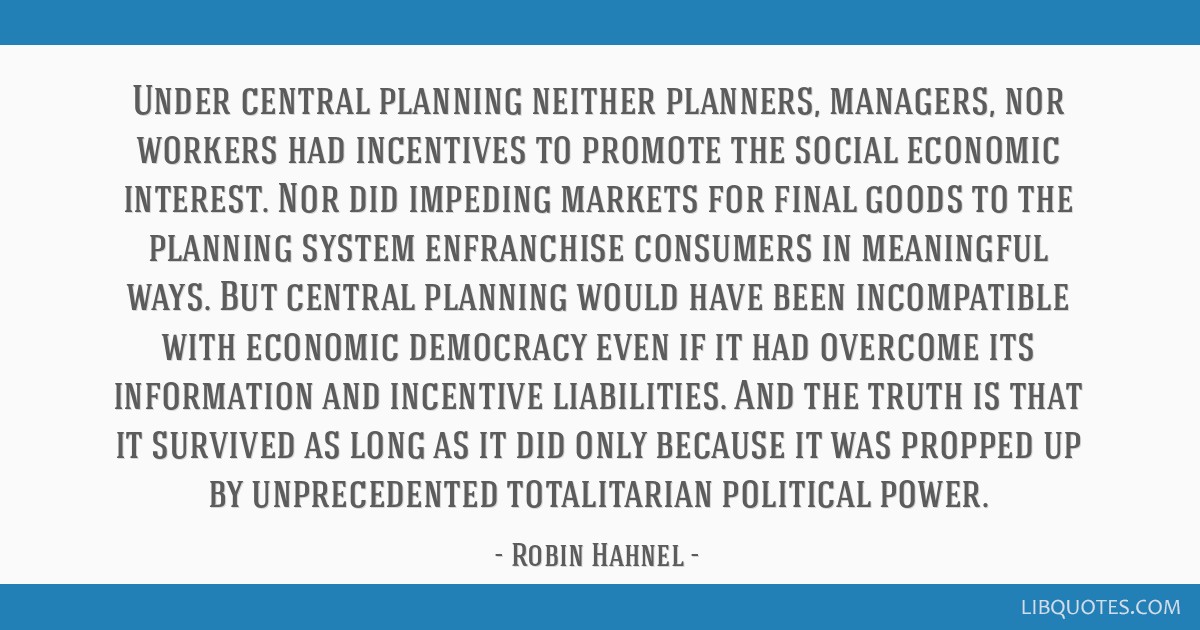Under central planning neither planners, managers, nor workers had incentives to promote the social economic interest. Nor did impeding markets for final goods to the planning system enfranchise consumers in meaningful ways. But central planning would have been incompatible with economic democracy even if it had overcome its information and incentive liabilities. And the truth is that it survived as long as it did only because it was propped up by unprecedented totalitarian political power.
Robin Hahnel, The ABC's of Political Economy, (2002) London: Pluto Press. p. 262.























